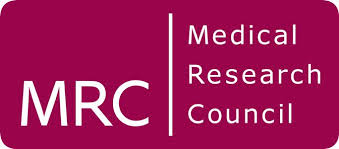
Short- and long-term antibiotic treatment reduces airway and systemic inflammation in non-cystic fibrosis bronchiectasis.
Chalmers JD, Smith MP, McHugh BJ, Doherty C, Govan JR, Hill AT.
Link to publication page: http://www.ncbi.nlm.nih.gov/pubmed/22744718
Journal Ref: Am J Respir Crit Care Med. 2012 Oct 1;186(7):657-65. doi: 10.1164/rccm.201203-0487OC. Epub 2012 Jun 28.
Abstract:
The vicious cycle hypothesis of bronchiectasis argues that bacterial colonization leads to airway inflammation and progressive lung damage. The logical extension of this hypothesis is that acute or chronic antibiotic therapy should improve airway inflammation and clinical outcome. There are little data to support this hypothesis in patients with non-cystic fibrosis (CF) bronchiectasis. To determine whether acute or chronic antibiotic therapy improves airway inflammation and clinical outcome in non-CF bronchiectasis. The relationship between bacterial load and airway and systemic inflammation was investigated in 385 stable patients, 15 stable patients treated with intravenous antibiotics, and 34 patients with an exacerbation of bronchiectasis treated with intravenous antibiotics. Long-term antibiotic therapy was investigated using samples from a 12-month controlled trial of nebulized gentamicin. In stable patients, there was a direct relationship between airway bacterial load and markers of airway inflammation (P < 0.0001 for all analyses). High bacterial loads were associated with higher serum intercellular adhesion molecule-1, E-selectin, and vascular cell adhesion molecule-1 (P < 0.05 above bacterial load ≥1 × 10(7) cfu/ml). In stable patients, there was a direct relationship between bacterial load and the risk of subsequent exacerbations (odds ratio, 1.20; 95% confidence interval, 1.11-1.29; P < 0.0001) and severe exacerbations (odds ratio, 1.11; 95% confidence interval, 1.01-1.21; P = 0.02). Short- and long-term antibiotic treatments were associated with reductions in bacterial load, airways, and systemic inflammation. High airway bacterial loads in non-CF bronchiectasis are associated with airway and systemic inflammation and a greater risk of exacerbations. Short- and long-term antibiotic therapy reduce markers of airways and systemic inflammation.RATIONALE:
OBJECTIVES:
METHODS:
MEASUREMENTS AND MAIN RESULTS:
CONCLUSIONS:

